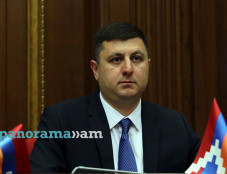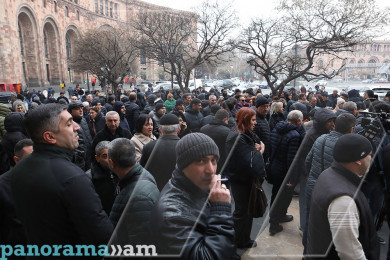
ECHR rejects Azerbaijan’s appeal to bring Mammadov’s case before Grand Chamber
The collegium of five judges of the European Court of Human Rights (ECHR) on Tuesday rejected the appeal of the Azerbaijani government to send the Ilgar Mammadov case before the ECHR Grand Chamber.
The aforesaid means that the ECHR judgement delivered on 16 November 2017 over Mammadov’s case is final, with the court finding that there had been a violation of Article 6 (right to a fair trial) of the European Convention on Human Rights in the Ilgar Mammadov v. Azerbaijan case. The court gave Azerbaijan three months to implement the judgement and release Ilgar Mammadov.
The Azerbaijani government disputed the registered violation. Mammadov also appealed to bring the case before the ECHR Grand Chamber, claiming that apart from the violation of the Convention’s Article 6, Azerbaijan also violated other articles, which was also rejected by the ECHR.
To note, Ilgar Mammadov v. Azerbaijan case refers to Azerbaijani opposition figure Ilgar Mammadov, who is currently imprisoned in Azerbaijan on charges of organizing mass disorder in Azerbaijani town of Ismayilli and being sentenced to seven years in prison.
The 2016 ECHR judgement found that Mammadov’s arrest was politically motivated and urged the country to immediately release him. ECHR particularly found that the actual purpose of Mammadov’s arrest was to silence or punish him for criticizing the government. However, Azerbaijan refused to implement the court ruling.
With Azerbaijan failing to execute the ECHR judgement on Mammadov’s case, the Committee of Ministers of the Council of Europe adopted an unprecedented decision last year, which could lead to Azerbaijan’s suspension from the Council of Europe.
The CoE Committee of Ministers brought before the ECHR the question whether Azerbaijan had violated the Convention and failed to fulfil its obligation.
To remind, the CoE member States are obliged to implement judgements from the ECHR. Failure to do so is a flagrant violation of the Convention, which, in its turn, is a breach of the CoE Charter, which can serve as a basis for suspension of a member State of the Council of Europe.
Related news
Newsfeed
Videos






























